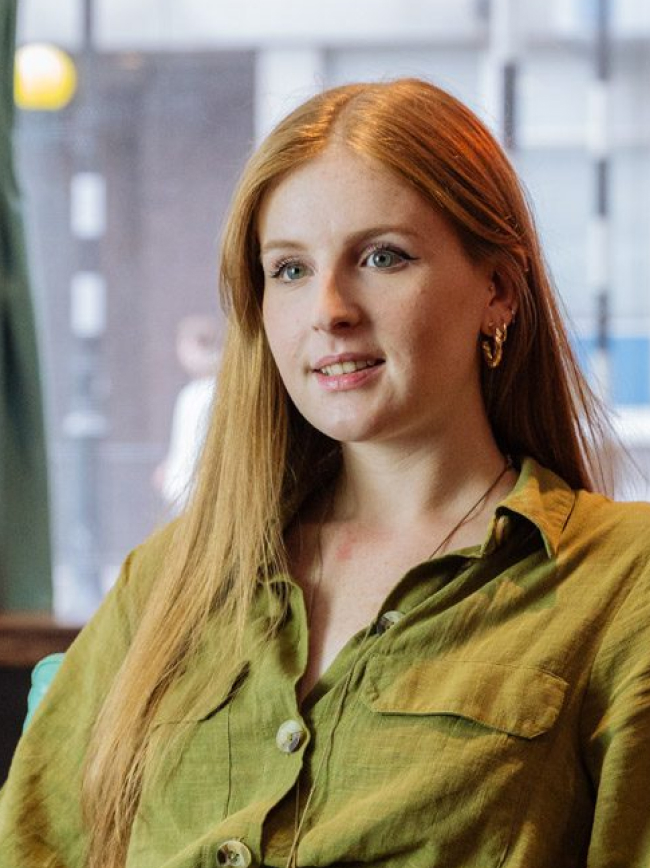Here comes Gen Z – is your B2B buyer journey and brand strategy ready?

Gen Z has already been dubbed one of the most disruptive, socially conscious generations yet. No topic is off-limits, and everything is open to scrutiny – including your B2B brand.
New buyers on the block
The way Generation Z operates, both online and offline, will soon force B2B brands to rethink their marketing strategy, as well as their younger customers’ buyer journey.
Take social media, for example: Millennials saw the emergence of superficial, super-edited Instagram feeds—the 2010s gave life to a whole new world of filtered content. But as one door closes, another opens. Gen Z, by comparison, has turned the former dance app TikTok into a place where people can have meaningful, authentic discussions about important social issues.
Of course, there’s still plenty of room for niche content like egg peeling, Twilight fan edits, and Aitch and Amelia stans. The general feeling is that this is a generation who know the power they hold to influence wider conversations. This change of pace will soon have game-changing implications for B2B brands.
Take a stance – and mean it
As a result of this generation-wide self-awareness, Gen Zers are demanding more from politicians, public figures, and the brands they support. They have high expectations, and displays of shared values set the standard for Gen Z’s purchasing decisions.
Research has found that 45% of the generation have boycotted a business, while 36% prefer buying products from companies that mirror their social and political beliefs. This is a feeling that likely won’t go anywhere with age, either – with 66% of shoppers saying that a company’s reaction to movements will permanently impact their view of that brand.
It won’t be long before the kids born in ‘97 and beyond are in the workplace deciding who to partner with, or buy from. And they’ll see through any flagrant attempt to virtue-signal support of a movement just for clout.
AIDA? I hardly know her!
However, it’s not just brand affiliation set to cause chaos for post-millennial B2B strategy. An even bigger roadblock is the typical buyer model—it simply doesn’t suit Gen Z.
You can be sure that Gen Z is far wiser to the tricks of traditional marketing than previous generations, and they’re also much harder to reach through old-school channels. Not only that, but our trusty awareness, interest, desire, action (AIDA) marketing funnel is completely lost on the younger generation.
AIDA was effective for the pre-digital age, when planting the seed and guiding the buyer through a series of steps was just the done thing. Not so much for the digital-savvy newbies who have grown up online – they’re used to being marketed to, and 69% report physically avoiding traditional marketing with ad-blocking software.
So, what’s a brand to do? Experiential marketing and top-tier content creation could be the answer. Gen Z aren’t interested in being passive consumers, they want to be involved—perhaps the rise of social activism is evidence enough of this.
Many of the top 50 brands for Gen Z use experiential marketing. A great example of which is Vans, with its own event space House of Vans where skaters can go and interact with likeminded people. Hosting “Girls Skate Night” and “Next Era” events, Vans is a brand that knows how to engage the next generation of decision makers by demonstrating that they understand what matters to them. There’s a lot to be learned from a brand that listens to its audience.
Whether they’re working or relaxing, we already know that Gen Z are perpetually online, consuming content on Twitter, Instagram or TikTok. Research found that 41% of B2B brands use plain text social posts to reach their audience, which means they’re at least on the right lines for appealing to Gen Z. But it’s time to think beyond the typical whitepaper and the dreaded PDF, and look into creating multimedia content that young people in the workplace will actually want to consume. And yes, that does mean creating a TikTok account for your business.
Act sooner rather than later
• • •
(Header photo: Christian Stahl on Unsplash)
Don’t be swayed from action by the fact they’re still young. This generation has barely entered the workforce and they already suffer from marketing fatigue. Which means they are, quite possibly, the most challenging B2B buyer demographic you’ve ever faced.
While it might only be 2% of Gen Z-ers who are currently making business buying decisions, that number is fast going to rise. This is why you need to figure out how you can tap into their motivations – and rethink your marketing strategy.
• • •
(Header photo: Christian Stahl on Unsplash)
